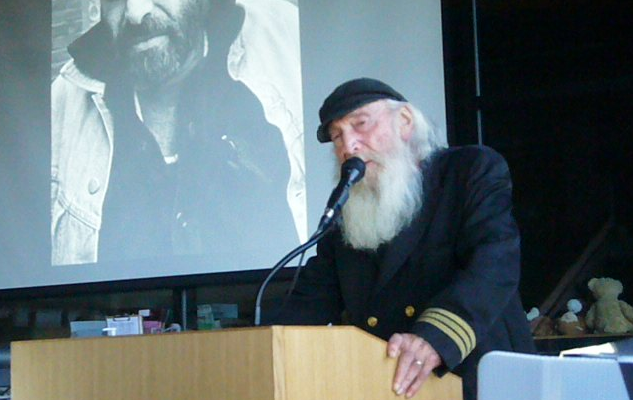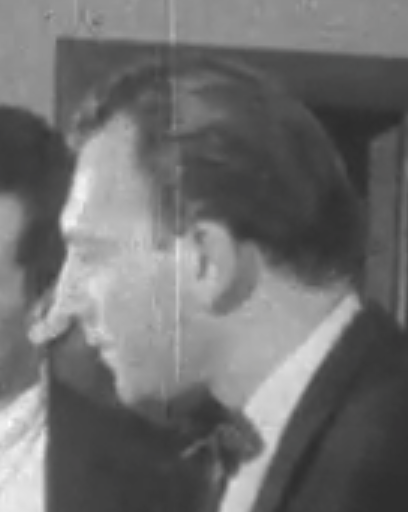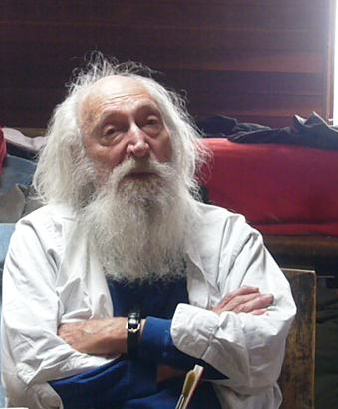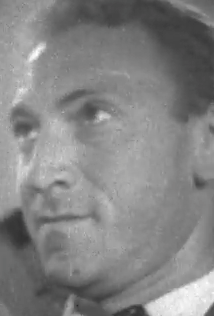
Larry Moyer was an American Original-- wit, raconteur, film-maker, Communist (until he went to the Soviet Union), Bohemian and libertine. Larry was everybody's friend and the bed-mate of many. Among his many friends were Hugh Hefner, Oleg Kalugin of the KGB, Shel Silverstein (on whose houseboat he lived until he died in February), and everyone in the Sausalito houseboat community. There are many wonderful pictures of him; the camera loved hiim as much as people did. He is survived by his wife Diane Karasik.
A SHORT HISTORY OF LARRY--
Larry grew up in Brooklyn, with an accent like Jimmy Durante's. He lost his virginity in a cab on the day of his bar mitzvah (a birthday gift). He was at Coney Island, gasping (with thousands of others) at the swastika on the Hindenburg's tail as it flew over the beach; he thought it was the collective curse of the crowd that made it burn moments later in New Jersey.After Pearl Harbor, Larry worked in Hawaii as a civilian, and helped pull bodies out of our bombed ships. Then, indignant at the low wages of the prostitutes that were servicing our servicemen, he attempted to unionize them-- an endeavor which was misrepresentd in a book and movie called The Revolt of Mamie Stover. "Then I found out the army was running the brothels," he said, and laid off his campaign.
Because of this union activity, Larry was questioned by an FBI man, who asked if he'd ever read Karl Marx. This caused Larry to read Karl Marx and become a Communist.
After the war, Larry worked as an Arthur Murray dance instructor and soon had his own dance studio in San Diego. (He said it was wonderful for sexual availability.) However, when he got word that the House Un-American Activities Committee was going to call him to testify, he abandoned his dance studio and hid out in the midwest with a female admirer.
Moving on to New York, he joined various Communist groups. For a time he was a gun-carrying bodyguard for the great singer (and lawyer) Paul Robeson.
Then Larry decided to see what Communism was really like, so he went to the Soviet Union. After various adventures and lady friends, he soon realized he could not live under such a government.THE TRIP TO CHINA
'So there I was in the Moscow hotel, down to my last three rubles," said Larry, "when these Chinese guys came up and said, 'How'd you like a free trip to China?' I said sure. So I went to my friends at United Press and borrowed a movie camera and a load of film. Next morning-- BAM BAM BAM! Two Marines were at the door, and they said, 'We're taking you to da ambassador.'
"The Ambassador [Christian Herter] was out of Central Casting-- white hair, white suit-- and he stands by da window and says, 'Our government has instructed me to ask you not to go to Communist China.'LARRY'S MOVIE CAREER"Then he paused and said, 'And if I were your age I'd do it myself.'"
(Herter's official remarks were quoted in TIME magazine, who called the trip a "Mis-Guided Tour".)
Larry filmed the trip-- five days on the Trans-Siberian Railway, then several weeks in China. He mailed the exposed film back to United Press-- they put it in newsreels-- and eventually they sent him an edited version (now on line at the Internet Archive). The footage is his but the edit is not.
On the trip were folk singers Peggy Seeger and Guy Carawan, who can be seen (but not heard) singing in Larry's silent footage. There are wonderful closeups of Chou En-Lai, showing his extraordinary charisma and charm, and distant shots of chairman Mao.
Larry himself appears briefly in the film, young and charismatic himself, and beardless.
 The film is uncensored and natural, unlike Chinese propaganda films of later years, and this makes it a valuable document. We see the great enthusiasm of the Chinese people as they welcome the group. Nothing seems to be posed or phony, and the natural emotions of the people are evident. We see the very friendly and human qualities of farmers, boat people, the old and young. It tells more about China, especially the China of that time, than a lot of reading.
The film is uncensored and natural, unlike Chinese propaganda films of later years, and this makes it a valuable document. We see the great enthusiasm of the Chinese people as they welcome the group. Nothing seems to be posed or phony, and the natural emotions of the people are evident. We see the very friendly and human qualities of farmers, boat people, the old and young. It tells more about China, especially the China of that time, than a lot of reading.A thirtyish Larry in China, from his film "Forbidden Journey"
On returning to the USA, Larry lived in Greenwich Village in an apartment building with a lion in the basement (used gruesomely by a gangster resident). He became a guard at the Museum of Modern Art and unionized the workers there; he actually had a meeting with Nelson Rockefeller, its loving founder, who backed down.
Then Larry decided to become a movie editor. He took one job after another, lying about his competence and learning a little more at each job before being fired. Eventually he was a movie editor, and got into the union.Larry then made a feature film, "The Moving Finger", on no budget at all. This threatened his position in the motion picture editors' union, because he was not allowed to work on a non-union production, even his own. There was a meeting to expel him from the union, but he filibustered with a long speech until there was no longer a quorum because so many members had gone home. ("The Moving Finger" got him a Best Director award at the 1963 San Francisco Film Festival.) Larry also mentored at least one Oscar-winning editor.
He started a feature film with actor Rip Torn, but it was never finished. Neither was his dramatic film about abortion in those days, which had the working title AB-DOC.
FINDING SAUSALITO
Somehow Larry got involved with Hugh Hefner (who ran orgies like an orchestra conductor, Larry said). He hung out at the Playboy Mansion in Chicago. He got to know a number of stars, including Bernie Schwartz (known to the public as Tony Curtis) and Peter Lawford.Around 1959 Larry got a letter from the IRS and returned it with the note DECEASED. He never heard from them again.
He then began to travel with Shel Silverstein. They went around the world (a trip celebrated in one of Silverstein's books) and then to San Francisco.
"After six months of sex and drugs in the Haight, we asked, what else could there be? And the answer came: SAUSALITO!"
It was the sixties, the houseboat community of Sausalito was still in its innocent hippie phase, and Shel bought a boat. "It was the time of the hitch-hookers," Larry said, "coke whores who'd go to the stop sign and come back fifteen minutes later with twenty bucks."
"That's when I said 'this is it', and I never left," said Larry.

